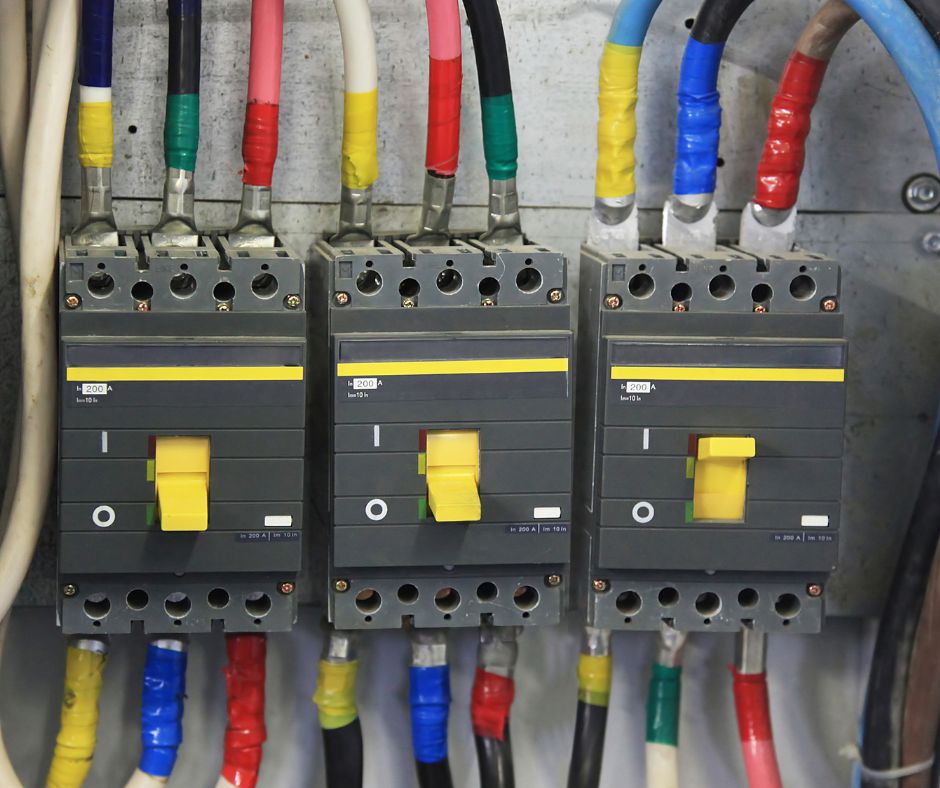Discover the Importance of Electrical Insulation Tape for Ensuring Electrical Safety
Electrical insulation tape is an essential tool that plays a critical role in protecting and insulating various types of electrical wires and cables. This indispensable item, often referred to as insulating tape, is crucial for maintaining safety in both professional and residential environments. By effectively preventing electrical shorts and shielding against moisture, dust, and abrasion, this tape is key to preserving the functionality and security of any electrical system. Recognizing the significance of electrical tape can empower you to avoid potential hazards while ensuring your workspace is organized and efficient.
Electrical insulation tape is available in a wide variety of sizes, lengths, and colors, each crafted from materials specifically designed for particular applications. These diverse options not only enhance insulation effectiveness but also support easy identification and organization of cables through color-coding. Using different colors allows for a more streamlined electrical work process, enabling quick identification of specific wires, which ultimately boosts your productivity and organizational efficiency.

Essential Conditions to Recognize When Electrical Tape Melts
Indeed, electrical tape can melt under specific conditions. In this article, we will explore the critical temperature thresholds associated with electrical tape, outline the conditions that can lead to melting, and identify vital signs of overheating that you should be vigilant about. Understanding these factors is crucial for the safe and effective use of electrical insulation tape across various applications.
Maximizing Safety by Analyzing the Temperature Limits of Electrical Tape
Like many materials, electrical tape has defined temperature limitations that must be respected for safe usage. Commonly, standard electrical tapes can endure temperatures up to about 80°C, although some heavy-duty options are engineered to withstand slightly higher temperatures. When conditions exceed these limits, the structural integrity of the tape can begin to deteriorate, leading to potential failures that could compromise safety.
As temperatures rise and approach the maximum limits, the effectiveness of electrical tape may start to decline. This degradation can present in various forms, including melting, a gooey texture, or, in extreme cases, total failure. Being aware of these temperature thresholds is essential for maintaining safety and performance in electrical applications, as it ensures that your projects are completed effectively and without unnecessary hazards.
For high-temperature scenarios, it is advisable to consider using specialized high-temperature variants of electrical tape. For example, heat-resistant tape made from materials like fiberglass or silicone can withstand temperatures of up to 200°C or more, making it an excellent choice for applications exposed to intense heat conditions.
Also Read: Keep Your Pets Safe Around Electricity
Request a Quote Today!
Inquire About Our FREE Electrical Inspections

Key Factors That Can Cause Electrical Tape to Melt
Electrical tape can melt due to several factors, primarily driven by exposure to extreme heat. Understanding these causes is essential for ensuring the safe and efficient use of this tape in various applications. Here are some common reasons that contribute to the melting of electrical tape:
Understanding the Detrimental Effects of Excessive Heat on Electrical Tape
The leading cause of electrical tape melting is its exposure to elevated temperatures. If the tape is positioned near hot surfaces, engines, or any components that generate significant heat, it may start to soften, bubble, or even melt completely. Additionally, electrical systems, such as power circuits, can produce more heat than the tape is rated to handle, particularly during malfunctions or overload scenarios.
Therefore, when applying electrical tape in areas prone to high temperatures, it is prudent to verify the temperature ratings of the tape to mitigate potential failures and uphold safety standards.
The Impact of Environmental Factors on Electrical Tape Integrity
Electrical tape is not designed for permanence. Over time, both the adhesive and the tape material can degrade, especially when subjected to UV exposure, moisture, or other harsh environmental conditions. This degradation can significantly reduce the insulating properties of the tape. As the tape ages, its effectiveness may diminish, making it increasingly susceptible to melting even at lower temperatures than it would typically endure.
Routine wear and tear are a normal aspect of the lifecycle of electrical tape. Hence, it is vital to regularly inspect the tape for signs of aging or damage to ensure ongoing safety and performance.
The Dangers of Incorrect Application of Electrical Tape
Applying electrical tape under less-than-ideal conditions can lead to premature failure. For instance, if the tape is wrapped too tightly, subjected to friction or heat, or overstretched during application, its functionality may be compromised. Furthermore, wrapping the tape around sharp edges or applying it to components that are likely to overheat, such as light bulbs or electrical outlets, can create issues unless the tape is specifically rated for those applications.
Also Read: 10 Ways to Save On Power And Energy Costs
Identifying Warning Signs of Overheating Electrical Tape
If you suspect that your electrical tape is overheating, there are several critical indicators to monitor. Here are the most common signs that your tape may be melting or experiencing excessive heat:
Detecting a Sticky or Tacky Texture in Overheated Tape
A noticeable alteration in texture, particularly a sticky or tacky sensation, is often one of the initial signs of melting electrical tape. This change can serve as an early warning that further degradation is underway, indicating that the tape may no longer provide sufficient insulation.
Identifying Discoloration as a Sign of Heat Damage
Overheating electrical tape may show significant discoloration. You might notice a shift from its usual black or colored appearance to hues of brown, dark gray, or even black. This transformation happens as heat causes the tape’s PVC or other materials to break down. Early identification of this issue can prevent further damage to your wires; if left unchecked, it can result in melting or even create serious fire hazards.
Observing Bubbling or Distortion as Indicators of Excessive Heat
If electrical tape begins to bubble, distort, or warp, it signals that heat is negatively impacting its structure. This typically occurs when heat causes the adhesive or plastic layers to separate or degrade. The surface may appear uneven or wavy, indicating that temperatures are surpassing safe levels. Upon noticing these bubbles, it is prudent to consult your electrician for a thorough evaluation.
Recognizing a Burning Smell as a Critical Warning
A burning smell near electrical tape is a serious warning sign not to be ignored. This odor may resemble melting plastic or burning rubber. When excessive heat causes the adhesive to degrade, the resulting fumes can be alarming. Never overlook this warning. If you detect a burning smell, it could signify that the tape is on the verge of melting or even igniting.
Visible Smoke as a Major Indicator of Danger
If you observe smoke emanating from the electrical tape, it is a clear indication that the heat levels have far exceeded what the tape can withstand. Smoke is a strong signal that the tape has likely begun to melt or may even be igniting. At this critical juncture, it is imperative to turn off the power source immediately and seek assistance from your electrician.
Remember – Never use water to extinguish an electrical fire. Instead, utilize a CO2 fire extinguisher for safety.
Safety Steps to Follow if Electrical Tape Melts
If you find that your electrical tape has melted, the first step is to disconnect any power sources or turn off any equipment to ensure your safety.
Prioritizing safety is crucial, as electrical hazards can pose severe risks to both lives and property.
Once you have ensured that the area is safe, always consult your electrician for expert guidance. If a professional installed the tape, they may need to inspect the area for any underlying electrical issues that could have contributed to the problem, ensuring comprehensive safety and functionality.
Exploring Alternatives to Electrical Tape for High-Temperature Scenarios
If you frequently operate in environments where temperatures exceed the limits of standard electrical tape, it is wise to consult your electrician about suitable alternatives. Here are several options worth considering:
- Heat-resistant silicone tape: This type of tape is specifically designed to withstand elevated temperatures and is ideal for applications where heat is a significant concern.
- Fiberglass tape: A robust alternative that can endure extreme temperatures without sacrificing performance or safety.
- Mica or ceramic insulation: For the highest level of heat protection, specialized insulations like mica or ceramic are excellent choices.
Key Insights on the Risks Associated with Melting Electrical Tape
In summary, electrical tape can indeed melt, primarily due to excessive heat exposure. Understanding the temperature limits of your tape and ensuring you select the appropriate type for your specific application are vital steps in preventing potential issues.
By remaining vigilant about signs such as discoloration, stickiness, or unusual odors, you can take prompt action to mitigate risks. Always prioritize safety and do not hesitate to contact your local electrician for expert advice whenever necessary.
Request a Quote Today!
Inquire About Our FREE Electrical Inspections

The Article: Does Electrical Tape Melt? Here’s What You Need to Know first appeared on https://writebuff.com
The Article Electrical Tape Melting: Essential Facts You Should Know Was Found On https://limitsofstrategy.com


I’ve always found electrical insulation tape to be an underrated hero in DIY projects. A few months ago, I was rewiring some old lamps, and it really saved the day when I noticed exposed wires. It’s amazing how something so simple can prevent hazards and keep your home safe.
You raise a valid point about electrical insulation tape being a crucial part of DIY projects. It often doesn’t get the spotlight it deserves. Your experience rewiring lamps really highlights its practical value. It’s interesting how a simple piece of tape can play a significant role in maintaining safety.